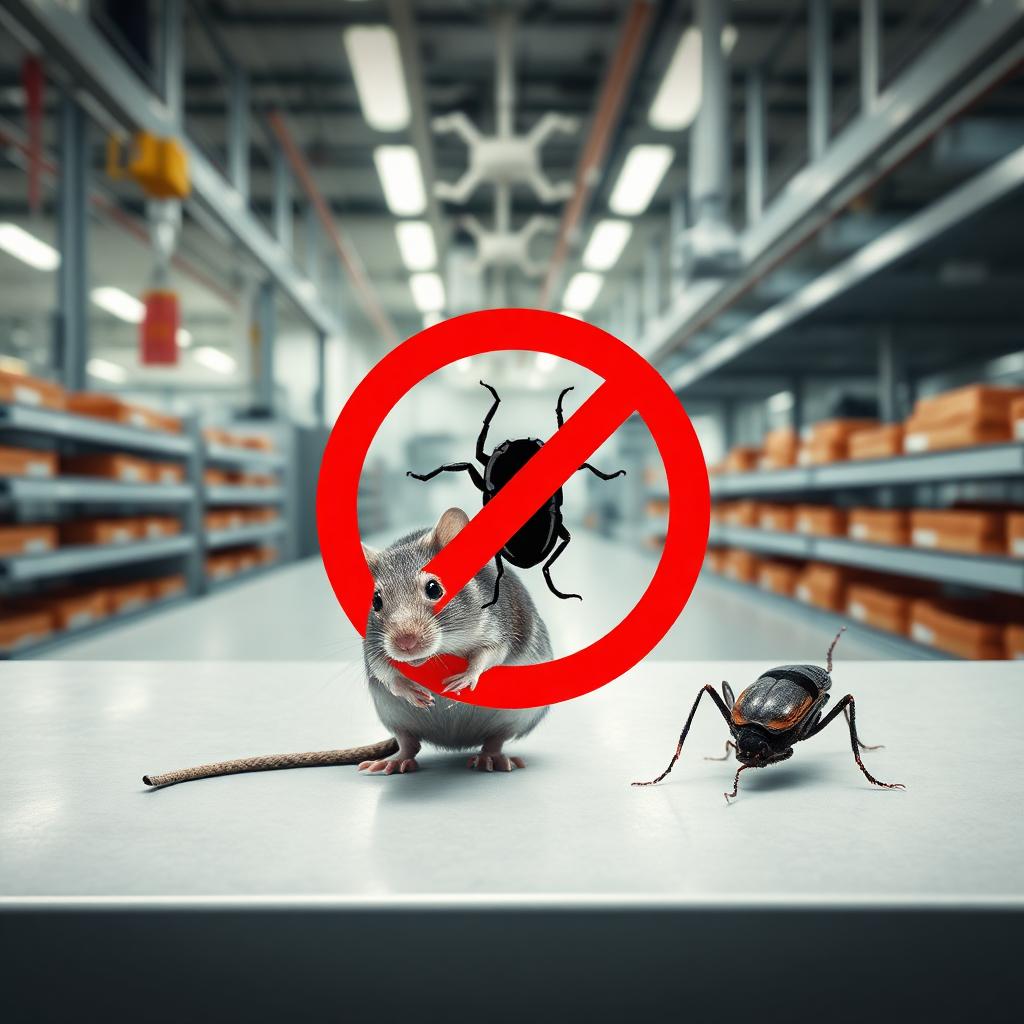
In the food industry, product safety and quality are essential priorities. The presence of pathogenic microorganisms such as Campylobacter poses a significant risk to public health and can damage a company's reputation if not properly managed. However, combating these microorganisms relies not only on microbiological testing and good hygiene practices but also on effective pest control. Rodents, insects, and other zoonotic vectors can facilitate the transmission and proliferation of Campylobacter, endangering the entire production chain. Therefore, a comprehensive approach that combines microbiological, sanitary, and pest management measures is crucial to achieve effective protection and maintain food quality.
Campylobacter is one of the main causes of food poisoning worldwide, primarily transmitted through contaminated foods such as poultry, unpasteurized milk, and polluted water. Having strict sanitary controls and conducting regular microbiological tests help detect the presence of this bacteria, but these measures alone are not enough if vectors that can transfer or facilitate its proliferation are present in the facilities.
Pests, such as rodents and insects, pose an often underestimated hidden risk in preventing cross-contamination. These vectors can enter facilities through open doors, structural gaps, or via contaminated vehicles and shipments. A pest problem not only creates a sanitary issue but also acts as a mechanism for spreading pathogens, including Campylobacter and other dangerous microorganisms.
Therefore, an effective pest control program is a strategic component in risk management for any production plant. Controlling and eliminating vectors significantly reduces contamination risks and helps ensure compliance with national and international health regulations. Combining good hygiene practices, pest management, and microbiological monitoring creates a safer, more reliable environment.
This is where JJMiteri can become your strategic ally. While we do not conduct microbiological studies, we provide specialized pest control support with trained professionals in the identification, management, and elimination of vectors. We implement preventive and corrective plans that include regular inspections, the use of physical barriers and control devices, and staff training to prevent pests from reentering.
Our comprehensive approach helps maintain optimal sanitary conditions, minimizing cross-contamination risks and the presence of Campylobacter in your products. Collaborating with pest control experts is key to strengthening your HACCP system and ensuring compliance with all regulatory requirements, thereby guaranteeing the safety of your production.
Regresar al listado